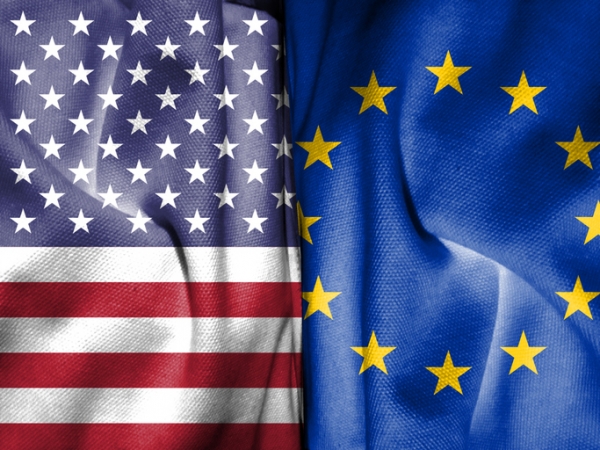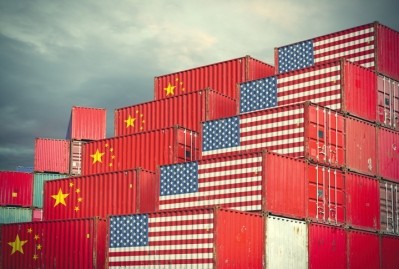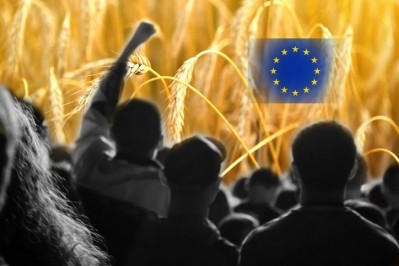Will transatlantic talks bolster feed sustainability efforts?

EU feed manufacturing industry trade group, FEFAC, along with American Feed Industry Association (AFIA) and the US soybean export council (USSEC), participated in a session on sustainable feed trade during the EU-US Trade and Technology Dialogue in Washington DC at the end of January 2024.
The Trade and Technology Dialogue (TTD), a three-year project funded by the EU, supports the EU Commission by facilitating stakeholder activities and analysis relevant to the EU-US Trade and Technology Council (TTC).
"The TTC serves as a major transatlantic economic dialogue forum. AFIA, USSEC and FEFAC secured an invitation from USTR/DGTRADE (EC) to present our joint initiatives on enhancing feed sustainability in the US and the EU," explained Alexander Döring, FEFAC secretary general.
The goal of the stakeholder event was to solicit input on the Transatlantic Initiative on Sustainable Trade (TIST) work program, which was launched at the TTC ministerial meeting back in May 2023.
The topics of food and agriculture, initially excluded from the forum, were reintegrated due to heightened concerns about food security following geopolitical tensions, revealed Döring.
The dialogue involved a round table discussion with the TTC in a listening mode only, without interventions. FEFAC and partners now await updates on potential next steps resulting from the event, including the advancement of feed participation in workstream packages and the establishment of a formal dialogue on feed sustainability between EU and US regulators.
Furthermore, EU-US collaboration on sustainable agriculture continues, with an upcoming engagement planned for the second week of April in Washington DC through the collaboration platform on agriculture, another joint initiative between the EU and the US. This forum aims to foster dialogue and collaboration on agricultural challenges, sharing information, exchanging ideas, and discussing sustainability efforts in both regions.
"EU and US officials are largely aligned," Döring told this site.

The interplay between regulation and a market-based approach may differ between the two regions, commented Döring, with the FEFAC lead also acknowledging the different pace and focus levels in the EU and the US relative to the sustainability topic.
“NGO pressure is not felt as hard in the US as it is felt here, but there are several joint frontrunner sustainability initiatives in the feed marketplace including the USSEC SSAP sustainable soy certification program, which has been successfully benchmarked by the International Trade Centre (ITC) in Geneva against FEFAC responsible soy sourcing guidelines and now covers all of US soy supplies for feed use to Europe.”
Döring also highlighted potential opportunities arising from the Inflation Reduction Act (IRA) passed in 2022, which could unlock new net-zero opportunities for US agriculture, with federal funding available to advance climate-smart farming and forestry practices.
"The importance of the US and EU feed sectors leading the global charge in harmonizing feed sustainability criteria cannot be overstated. Together, we are poised to make significant advancements in sustainable agriculture practices, thereby contributing to the reduction of greenhouse gas emissions and promoting transatlantic sustainable trade." - Constance Cullman, president and CEO, AFIA.
Green labelling
In terms of feed sustainability, the EU feed and ag sectors have made considerable progress, particularly on the regulatory side. "We have done our homework, and helped develop the Global Feed LCA Database (GFLI) together with AFIA and other partners; we had to as we had long recognized that feed has the most impact when it comes to livestock farming," he stressed.
FEFAC, in cooperation with FEFANA and Copa-Cogeca, presented draft green feed labeling guidelines to the EU Commission in December 2023, building on existing regulations and providing additional information for feed compounders on communicating feed environmental footprint results to farmers along with recommendations on how to substantiate any claims.
The guidelines, based on the PEFCR methodology and the GFLI database, aim to deliver reliable and verifiable environmental impact and footprint information on feed to support the transition towards more sustainable livestock and aquaculture production systems.
Currently, they are under review by the Standing Committee on Animal Nutrition. “We are now at the scrutiny stage and awaiting feedback from member states.”
Protein innovation
FEFAC’s upcoming AGM in May aims to propel discussions forward on ensuring strategic autonomy within the EU agri-food chain, particularly regarding protein innovation. Central to this dialogue will be an examination of key market and regulatory factors to enhance the circularity of the EU feed and livestock chain while mitigating carbon emissions from feed ingredients.
"The legislative landscape in Brussels saw a significant shift with the adoption of the Open Strategic Autonomy framework during the Granada Summit last October, under the Spanish presidency of the EU, now embraced by the Belgian Presidency. This framework elevates food security and the resilience of the food chain to the same priority level as energy and military security," reported Döring.
The event will delve into how the forthcoming EU Protein Plan aligns with this strategy, enhancing EU food resilience and fostering greater production of domestically sourced protein, including alternative sources like algae, insect larvae, yeast, or single cell proteins, alongside plant-based sources, with Andre Negreiros from CORTEVA exploring, in a keynote presentation, the potential to increase those.
Recent strides in domestic soy cultivation and advancements in technology enabling the use of sunflower meal in monogastric feeds highlight notable achievements in the European feed protein landscape. "These advancements, alongside the significant output of rapeseed meal from the biofuel sector, underscore progress toward self-sufficiency," noted Döring.
The perspectives of poultry and pig farmers will feature prominently at the conference, with industry leaders such as Birthe Steenberg, secretary general, of poultry industry trade group, AVEC, and Christiane Lambert, Copa president in addition to being a pig farmer, set to share insights on transitioning towards increased circularity and reduced carbon emissions.
Understanding the needs of these sectors is crucial for aligning efforts within the feed industry, believes the FEFAC lead.
Last year we reported on case studies from the Netherlands that demonstrate how circular and sustainable feeding concepts linking farmers and retailers can support food waste reduction.
Carbon removal
Annick Pleysier from Bayer will also participate, bringing insights into carbon removal strategies in crop production.
Exploring avenues to make crop farming and livestock production carbon neutral or even carbon positive is critical, continued Döring, stressing the need for innovative thinking.
A persistent critique of the PEFCR is its exclusive focus on negative impacts. Looking ahead to the next five years, the emphasis in LCA modeling may be shifting towards encompassing the positive contributions of livestock production. Döring noted how the significant carbon sequestration potential of well-managed grasslands is a factor often overlooked in carbon footprint assessments.
"It's imperative to determine how carbon removal and carbon farming can emerge as tangible incentives for farmers," he added, topics also likely in the spotlight at FEFAC’s meeting.
Update [March 15]: DG Agri has announced that the new EU protein report will be delayed until summer 2024, meaning FEFAC will need to adapt the theme of its AGM to reflect that postponement.













